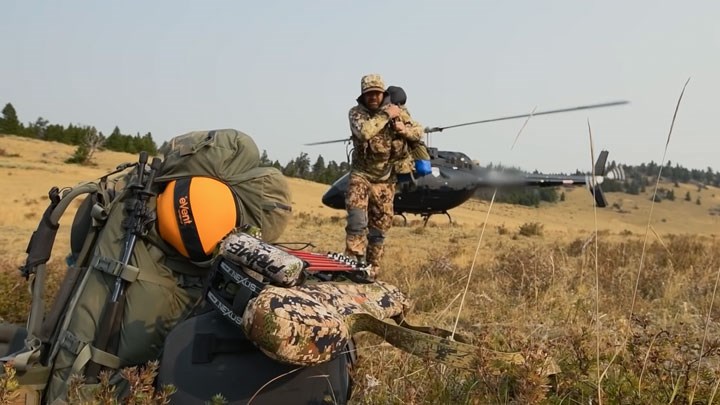
by Mark Chesnut - Monday, December 13, 2021

If you’re like most hunters in the United States, you probably dream of having your very own hunting land rich with game and ample opportunities to pursue your passion. But, if you were to own a chunk of really prime hunting land and didn’t have any way to access that property, what good would it be to you?
That’s one of the questions explored in the documentary “Project Landlocked,” produced by hunter Jason Matzinger, host of “Into High Country” on the Sportsman Channel, and presented by the Theodore Roosevelt Conservation Partnership, onX and the Rocky Mountain Elk Foundation. In the 40-minute film, Matzinger explores some 16.43 million acres of public land across 22 states—the equivalent of about seven Yellowstone National Parks—that are landlocked by surrounding privately owned land and completely inaccessible via any public thoroughfare. In the process, Matzinger explains the complex history of these landlocked properties, mostly in the Western United States, and delves into what the future might hold for such lands.
In the United States, the federal government owns more than one-quarter of the land—some 640 million acres. Accessing one landlocked piece of property by helicopter for an archery elk hunt, Matzinger begins exploring a conundrum that many American hunters and other outdoor recreationalists don’t even realize exists.
“Today, I’m hunting one of those landlocked sections,” he says. “I’m on an island of public land surrounded completely by private property. And dropping from the sky is the only way for me to legally access it without trespassing. It’s a little impractical, to say the least.
In this particular instance, it wasn’t just about obtaining permission from one landowner to access the publicly owned property. Matzinger would have had to obtain permission from about three different landowners to get to this particular piece.
The newfound interest in landlocked public lands stems largely from a project begun in 2018 by the Theodore Roosevelt Conservation Partnership and onXMaps to try and determine the scope of the problem.
“Hunters have been aware of inaccessible public lands for a long time,” Lisa Nichols, access advocacy manager at onX, said in the documentary. “They spend a lot of time hunting and scouring over maps and they recognize places on the map where they can’t get to.”
What the organizations found through the project was staggering. They knew there were a lot of landlocked properties, but they had no idea of the vast number of acres of public lands that were completely inaccessible.
The increased realization soon became a rallying cry among those who see public lands as a birthright to be enjoyed by all Americans. And that cry has even reached as far as the halls of Congress.
While the issue of landlocked lands cannot be solved with a single solution, one result of the revelation of the scope of the problem was the Modernizing Access to Our Public Land Act (MAPLand) introduced in 2019. That legislation would “require the Secretary of the Interior, the Secretary of Agriculture, and the Assistant Secretary of the Army for Civil Works to digitize and make publicly available geographic information system mapping data relating to public access to federal land and waters for outdoor recreation, and for other purposes.” The legislation also would provide funding to the various agencies to complete the digitized mapping project.
In addition, some states are joining in on the effort. Western states like Montana and Wyoming are working hard at the state level to try and give hunters more access to these landlocked properties.
“Project Landlocked” is an eye-opening documentary that should be of interest to all Americans, especially hunters who use public lands. As Matzinger puts it in the film, “Without access, we’ve got nowhere to go.”
To learn more about this important topic, watch Project Landlocked by clicking here.
About the Author
Freelance writer Mark Chesnut is the owner/editorial director at Red Setter Communications LLC in Jenks, Okla. An avid hunter, shooter and field-trialer, he has been covering Second Amendment issues and politics on a near-daily basis for over 20 years, previously serving as editor of the NRA’s America’s First Freedom.
E-mail your comments/questions about this site to:
[email protected]
